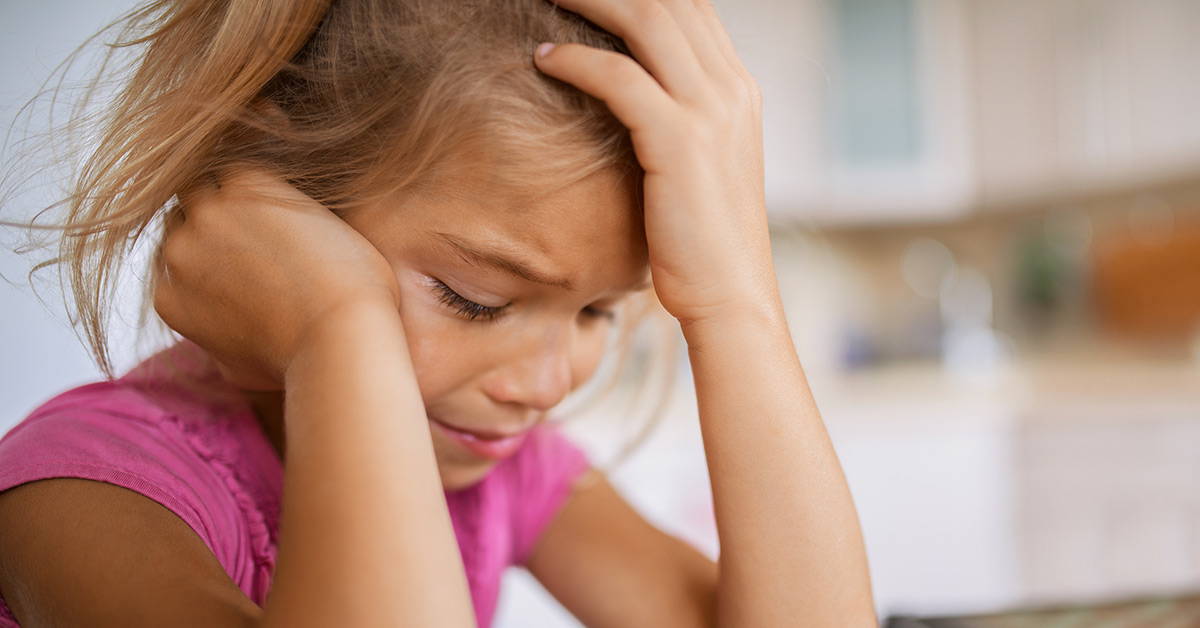Childhood trauma and its impact is a highly discussed and studied topic. Many psychologists and researchers have noted that there are specific trauma behaviors that childhood trauma survivors express as adults. For these people, recognizing these behaviors in themselves and understanding why they display them can help them heal from those situations and not have them affect their health and life experience as adults.
Trauma Behaviors: Understanding Childhood Trauma
Before we get into trauma behaviors and the effect of childhood trauma on adults, it is important to understand what “trauma” actually is. Trauma is a current “trendy” word, and people often confuse a difficult experience with actual trauma. Knowing the difference between these will help you better understand your own experiences and help validate the real traumatic experiences that others have or are going through.
The Difference Between Trauma and A Difficult Experience
We all go through difficult experiences in our lives; often, some occur when we are children. A difficult or challenging experience, however, isn’t necessarily traumatic. For example, your parents getting a divorce is a challenging experience, for sure. Yes, it may alter your view of relationships somewhat. This doesn’t mean that this experience was traumatic. Watching your father regularly abuse your mother, however, is a traumatic experience. (1)
The Mosquito And Bee Analogy
Dr. Daniela Montalto explains the difference using the analogy of mosquito bites and bee stings.
“Mosquito bites are really annoying and for a few moments draw our attention, and we itch them a lot. Anyone who has been bitten by a mosquito can also tell you that they go away,” she explains. “[In comparison, a bee sting] seems to be the most important thing in the world—it hurts a lot, and there is often a stinger that has to be removed. Bee stings take a bit longer to get over, but they eventually fade from memory.” (1)
Both of these experiences are difficult, but they don’t necessarily have lasting mental and physical health implications. She goes on to explain that if you are stung by a bee but you are allergic, this bee sting experience becomes much more traumatic. This is an experience that the survivor is not likely to forget. This, in essence, is the difference between actual trauma and difficult or scary experiences. (1)
“the average child stung by a bee can go to school, has friends, and gets along well at home—this is not PTSD. Only when the post-traumatic symptoms interfere with these areas of life do we end up with a diagnosis,” Dr. Montalto says. “Ninety percent of people who develop post-traumatic symptoms have complete remission within eight months. And remember, we’re talking about 90 percent of the 10 percent who have significant symptoms.” (1)
Read: The Scientific Reason Why Having Someone To Vent To Is Good For Your Health
What Constitutes Childhood Trauma
The Blue Knot Foundation puts childhood trauma into three categories (2):
- Trauma from something done to a child:
- Abuse (sexual, physical, or emotional)
- Witnessing or experiencing family violence at home
- Witnessing or experiencing community violence (civil unrest, war, gang violence, refugee, etc.)
- Trauma from something that doesn’t happen,
- i.e., physical and emotional neglect
- Generational trauma effect:
- The parent is so affected by their own trauma that they are unable to meet their child’s emotional needs and are unable to connect or bond with their child properly:
- Parental poor-health
- Substance abuse problems
- Prison time
- Difficulty handling their own separation or divorce
- The parent is so affected by their own trauma that they are unable to meet their child’s emotional needs and are unable to connect or bond with their child properly:
Typically, these experiences are chronic or repeated; however, a child can experience single-event trauma. For example, witnessing the death of a loved one. (3)
Read: 7 Signs Your Partner’s Negativity Is Messing With Your Mental Health
4 Behaviors of Childhood Trauma Survivors
For those who experience true trauma as children, these experiences often have a lasting impact on the victims’ mental and/or physical health. Psychologists and researchers have identified several trauma behaviors often expressed by adults who experienced trauma when they were children.
1. Trust Issues and Difficult Relationships
Often childhood trauma comes at the hands of adults that the victim is supposed to be able to trust: A parent, grandparent, other family members, or caregiver. This experience teaches them that the world is dangerous or scary and people, in particular, adults, are not to be trusted. As adults, these victims have trouble trusting others, and therefore building lasting, healthy, and stable relationships are very challenging. (4)
2. Anxiety, Depression, and Emotional Management Problems
The experiences you have as a child are the ones that largely shape how you view the world and how you express yourself. If your early experiences are scary, confusing, painful, or abusive, they can permanently affect how you think and even the actual chemistry of your brain. Adults who experienced trauma, abuse, and/or neglect as children are more likely to have issues with anxiety and depression as they get older. (5) On the same vein, childhood trauma survivors are more likely to have problems with:
- Anger and aggression
- Fear
- Feelings of isolation
3. Low Self-Esteem
This occurs particularly when the trauma involves abuse or neglect by the child’s parent or caregiver. These are the people who are supposed to teach us, love us, and support us. Children who are abused or who grow up feeling as though they have to “earn” this love and support often grow up to have low self-confidence and lack a sense of self. (5, 6)
4. Self-Destructive Behavior
These can involve many behaviors, including:
- Self-sabotage and inertia
- Substance abuse
- Poor lifestyle choices (for example, poor diet and other lifestyle factors)
For these reasons, victims of childhood abuse and trauma are more likely to have physical health problems, such as obesity, diabetes, heart disease, and other illnesses. (5, 7)
Help Is Available
Just because you experienced childhood trauma doesn’t mean that you are doomed to live an unfulfilling, unhappy, or unsuccessful life. There are countless stories of incredible people who overcame their trauma to go on and achieve amazing things. You can do this, too.
The most important thing to do is seek the professional help of a psychologist. There is no shame in going to therapy. A professional can help you to not only open up and recognize your trauma for what it is, but they can also help you work through it. Together, you can work toward a future in which your trauma doesn’t define you or stop you from living a whole, happy life.
Keep Reading: 12 ‘Harmless’ Remarks People Heard Growing Up That Affect Their Mental Health Today
Sources
- “Understanding the Difference Between a Difficult Moment & a Trauma.” NYU Langone
- “What is childhood trauma?” Blue Knot
- “What is complex trauma?” Blue Knot
- “Childhood trauma and adult interpersonal relationship problems in patients with depression and anxiety disorders.” Annals of General Psychiatry. Hyu Jung Huh, et al. September 16, 2014.
- “Diagnostic And Statistical Manual Of Mental Disorders, Fifth Edition.” DSM
- “4 Ways Childhood Trauma Can Affect Adults.” Psychology Today. Andrea Brandt Ph.D. M.F.T. June 1, 2017.
- “Childhood Adversity and Adult Chronic Disease.” AJPM Online. Leah K. Gilbert, MD, MSPH, et al. October 06, 2014

